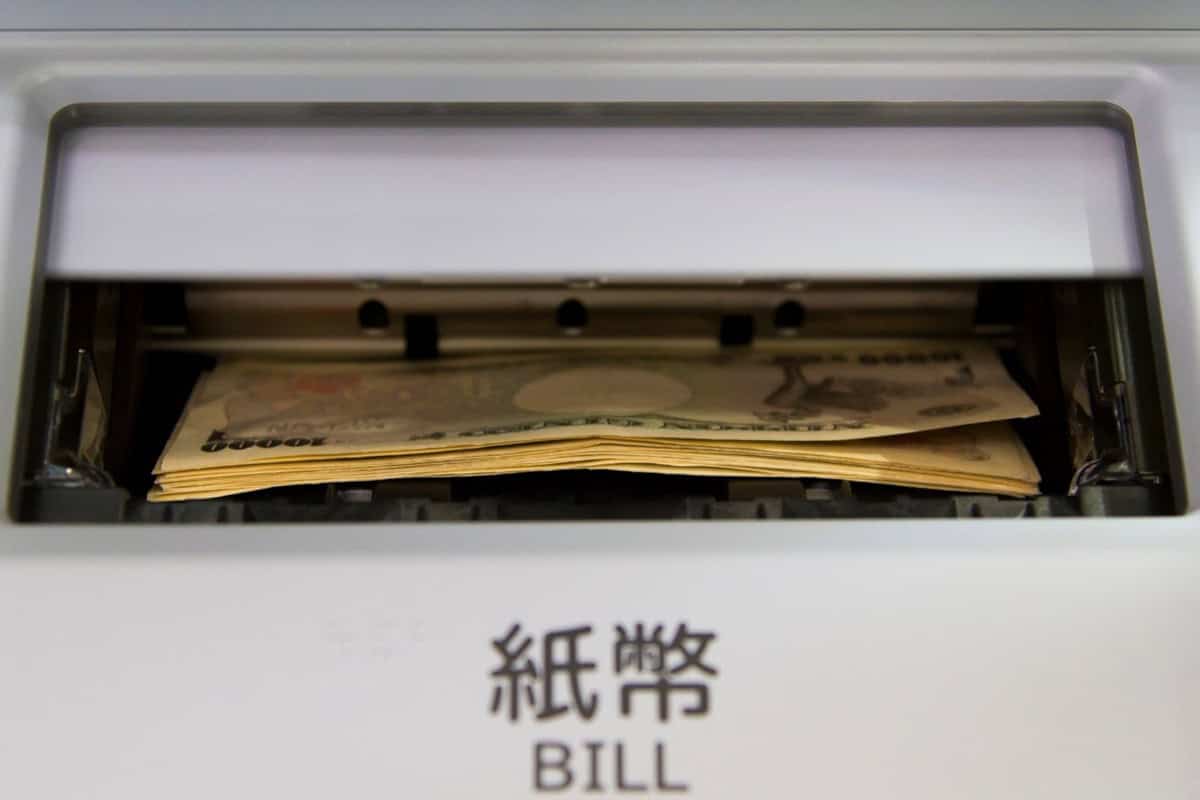
We help businesses accept payments online.
Whether you’re looking to tap into the Chinese market or provide a better shopping experience for global customers, AliPay offers unmatched opportunities to expand your reach and boost your business.
Launched by Alibaba Group in 2004, AliPay is the most used payment method for cross-border shopping, and it is preferred by millions of Chinese consumers. AliPay is a payment platform and an all-encompassing eWallet that allows users to store debit and credit card details, transfer funds between accounts, pay bills, and shop both online and in person.
It seamlessly integrates multiple payment methods, including bank transfers and credit cards, making it innovative and integral in the world of eCommerce. A global leader in digital payments, AliPay has over 2,000,000 stores in Japan, bridging the gap between international merchants and the rapidly growing Chinese market.
This guide explores AliPay’s features, benefits for both merchants and customers, considerations, and practical steps for integrating it into your online store.
What is AliPay?
AliPay is a digital wallet app that allows users to store debit or credit card details on their smartphones for online and in-store purchases. With over 450 million users and 100 million daily transactions, it is China’s most widely used payment platform. The app allows users to shop online, transfer money, and even manage utility bills—all from a single platform.
In addition to its online capabilities, AliPay is widely used in person for everyday transactions at supermarkets, restaurants, transportation, and more. The platform also supports cross-border shopping, making it a go-to payment option for Chinese consumers traveling abroad.
AliPay is not only available in China. Japanese businesses are now accepting AliPay as an online and in-store payment method. This aligns with the significant role Chinese travelers play in Japan’s tourism industry, representing 25.4% of all foreign visitors in August 2024, with 745,800 Chinese tourists that month alone.
There is also a high demand for Japanese products by Chinese consumers based on a perception of more reasonable prices, quality, and brand authenticity. Alipay’s influence extends far beyond China. To meet this demand, over 2,000,000 stores in Japan now accept Alipay, according to Japan’s Ministry of Economy, Trade, and Industry. For Chinese consumers, Alipay offers:
- Convenience: A familiar and trusted payment method, reducing reliance on cash or foreign credit cards.
- Seamless Transactions: Real-time currency conversion and transparent pricing enhance the shopping experience.
- Integration with Travel Needs: Supports payments for transportation, dining, and accommodations, making it indispensable for tourists.
For Japanese businesses, Alipay offers an opportunity to attract and cater to the Chinese consumers market, boost customer satisfaction, and gain a competitive edge globally.
Features
Alipay functions as a digital wallet that not only stores credit and debit cards but other information necessary to complete online transactions, such as shipping address and contact details. It can also store ID cards like your driver’s license, and insurance cards, which can be used to verify identity or claim a booking such as a hotel reservation, plane ticket, or event ticket. Key features Include:
Payment Processing
Users can pay easily, either online or in-store, using their mobile phones. QR codes allow for faster, contactless transactions.
Escrow Services
Alipay is designed to ensure secure transactions and protect both parties by providing an escrow service, where payments are held until the buyer confirms receiving the product or service.
Mobile Banking
Through the app, users can perform essential banking functions such as checking balances, transferring money, and paying bills.
Integration with ECommerce Platforms
Alipay is integrated with most major eCommerce platforms, making it easy to process payments for online businesses seeking to reach a large customer base.
Data & Analytics
Alipay provides data and insight into spending patterns, offering valuable information that can be used to improve financial decision-making.
How AliPay Works
The Alipay app is internationally designed for users outside of Mainland China and is made accessible in English. It is free and simple to use and only requires users to create an account and add card details. The Alipay digital wallet offers the flexibility of paying online and in-store.
How to make Online payments through Alipay:
- Account Setup
Creating an account is free, and once you have done so, simply add your debit or credit card details. All of your information will be saved and will not need to be re-entered for future transactions.
- Select Payment Method
At checkout, select Alipay as a payment method. Once selected, you will be redirected to the Alipay platform, where you will be asked to log in to complete the transaction.
- Transaction Processing
Once the payment is confirmed, funds will be immediately transferred to the merchant via the user’s linked account, making it a fast and seamless transaction.
How to make In-store payments through Alipay:
In physical stores, payments are simple and operate through QR codes. There are two options for generating codes:
- Merchant-presented code: The merchant displays a QR code, which the customer scans using their phone to initiate the payment. The customer then selects their payment option and completes the purchase.
- Customer-presented code: The customer presents their payment code to the merchant, who scans it to collect the payment. This method is faster and works well even with a weak connection.
Why eCommerce Merchants Should Consider Alipay

Businesses that integrate Alipay, can benefit from the following features:
1. Access to a large and growing market
With 450 million users, Alipay has a vast user base, particularly in China. By integrating Alipay as a payment method, merchants have access to a large and growing market of customers including the local Chinese market and Chinese living or traveling abroad. This helps to improve brand awareness.
2. Facilitates International Business
For businesses that sell to international customers, Alipay can handle cross-border transactions, and currency conversions, and comply with international financial regulations. Integrating Alipay is simple for online merchants, as it allows them to easily offer it on their website or app through a payment gateway like KOMOJU.
3. Detailed Customer Insights
By implementing Alipay, businesses can gain access to data and analytics on customer behavior and trends. This information allows them to tailor their product offerings and marketing and business strategies.
4. Enhanced Customer Experience & Trust
Alipay is a mobile-friendly and easy-to-use payment platform. Its escrow service adds an extra layer of security by ensuring that payment is released only after the product has been delivered, building trust and encouraging both first-time and repeat customers.
Benefits of Using Alipay for Customers
1. Secure & Reliable
Alipay’s escrow service ensures that payment is held until the customer confirms receipt of goods or services. This provides unique buyer protection compared to many other digital wallets.
2. Integrated ID Management
Alipay differs from other digital wallets as it allows users to store and use digital IDs such as driver’s licenses and insurance cards. This makes it easy to validate identity and allows for seamless check-ins, for hotels, flights, and events.
3. All-in-One Financial Ecosystem
Alipay offers other financial tools including mobile banking, bill payments, and online shopping. This integration allows users to have a unified, versatile experience.
Integrating Alipay with Your Online Store
There are two primary methods for integrating Alipay into your online store:
1) Directly Integrating Alipay
2) Integration through a payment gateway.
The method you choose will depend on your level of technical expertise and the resources (budget, time, and staff) you have available for testing, production, and ongoing support.
Integrating Alipay directly
If you choose to integrate Alipay directly, follow the steps provided by Alipay Global Partner Developer Center. This will involve creating an account, setting up your API, and handling client IDs and public keys.
Partnering with a Payment Gateway
A Payment Gateway can simplify the process by offering pre-built integrations, payment processing tools, and customer support, making the process easier and less technical. They often handle the technical setup, security, and compliance, saving time and reducing the complexity of integrating Alipay into your store. This involves:
- Integration through plugins or APIs designed for widely used eCommerce platforms like Shopify, WooCommerce, or Magento.
- Access to ongoing customer support, fraud prevention, and compliance
- Managing refunds, chargebacks, and currency conversions.
Overview: With this option, you use a third-party payment gateway (like KOMOJU) to handle the integration of Alipay into your online store. The gateway provides pre-built solutions for integrating Alipay, making the process simpler and less technical. A key advantage of this is that it is easier to scale and manage multiple payment methods.
Integrating Alipay with KOMOJU
Using a payment gateway like KOMOJU, allows you to integrate multiple payment options into your website. As a business owner, you can then focus on managing your website and business while simplifying the payment process for yourself and your customers.
1. Sign Up with KOMOJU
- Create an account on the KOMOJU website.
2. Complete the English application
- This includes applying for Alipay and any other payment methods you want to offer your customers.
3. API Integration
- Once your application is approved you can connect KOMOJU to your eCommerce platform through EC platform integration or API.
- This will allow you to seamlessly integrate Alipay and other payment methods, including mobile wallets and credit cards, for smooth transactions.
4. Pay Nothing Until a Sale is Made
- With KOMOJU, there are no initial setup costs or monthly fees. You only pay a processing fee per transaction. This ensures that you only incur costs when you make a sale, providing a low-risk solution for integrating Alipay into your eCommerce site.
Key Considerations for Implementing Alipay
There are key factors that businesses need to consider for smooth integration when implementing Alipay. These include understanding Alipay’s fee structure, data security and compliance, and customer support to help businesses navigate the process effectively.
Understanding Alipay's Fee Structure
Although there are no fees for implementing Alipay, once integrated, there are transaction fees for merchants and consumers. Understanding these fees is essential for businesses implementing Alipay. Here is a breakdown of the primary fees:
Merchant Fees
- Transaction Fee: Merchants using Alipay via KOMOJU are charged a processing fee of 2.90% plus a fixed amount based on currency (e.g., 0.10 EUR, 0.10 USD, 10 JPY). This is a competitive alternative to the 3–4% fees typically charged by credit card companies.
- Volume Discounts: As the volume of transactions increases, transaction fees decrease. For businesses with high sales volumes, Alipay can be a cost-effective option.
Consumer Fees
- Transaction Fees: Standard transactions do not have any fees.
- Withdrawal Fees: For withdrawals exceeding RMB 20,000 per month, AliPay charges a 0.1% fee, encouraging users to keep funds within the system.
International Transactions
- Credit Card Fees: Alipay applies a 3% service fee for transactions made using international credit cards like VISA, MasterCard, or JCB on platforms such as Taobao or Tmall.
- Currency Conversion and Other Fees: Nominal fees may apply for conversion or withdrawals to external bank accounts, varying by transaction amount and currency exchange rates.
Enforcing Data Security and Compliance
Alipay ensures secure transactions by using advanced encryption and security measures to protect users’ financial information and personal data.
It also meets global legal requirements and industry norms by complying with international financial standards and regulations. Independent third-party firms perform regular audits and updates to ensure Alipay’s security measures are up-to-date.
Handling Customer Support for Payment Issues
Merchants considering integrating AliPpay through a payment gateway like KOMOJU can benefit from dedicated support for setting up their account setup, payment integration, and resolving issues with assistance in English.
The platform also offers tools for managing fraud, chargebacks, and disputes, ensuring quick resolution.
Summary
Alipay offers merchants a unique opportunity to tap into the growing Chinese market, enhance customer experience, and streamline international transactions.
This popular digital payment platform stores users’ credit and debit card information and makes online and in-store payments convenient, seamless, and secure.
For merchants, integrating Alipay into your eCommerce platform is an opportunity to improve sales, build customer trust, and gain valuable insights into consumer behavior. Whether integrating directly on their own or using a payment gateway like KOMOJU, Alipay is a powerful tool for businesses looking to expand their reach in the global market.
FAQs
While there are some similarities, across these two online payment platforms that allow consumers to make purchases and transfer money, Alipay and PayPal are two different payment platforms.
Some key differences are:
- Alipay is mainly used in China, while PayPal is mostly popular in Europe and the United States.
- PayPal focuses on payment processing while
- Alipay provides additional services like taxi bookings and utility bill payments.
- PayPal charges a foreign exchange fee, while Alipay only charges a transaction fee.
Alipay was developed by an established company, the Ant Group, which is a financial technology company owned by Alibaba, a Chinese multinational technology company that specializes in eCommerce, retail, internet, and technology.
Alipay employs multiple security measures that have helped establish Alipay as a trusted payment method for millions of users worldwide.
In addition to using advanced encryption to protect users’ private information and transactions, Alipay also offers safety and security services that monitor risk and also provide transaction insurance.
Alipay presents several challenges for both customers and merchants. For customers, concerns include privacy issues, dependency on technology, and potential transaction fees. For merchants, disadvantages include transaction fees, technical difficulties, integration challenges, limited market reach, regulatory compliance, payment delays, and internet connectivity issues. These factors can impact both user experience and business operations.

We help businesses accept payments online.



















